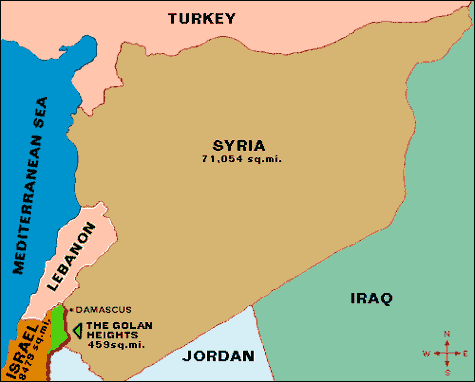Reuters:
In separate remarks breaking with Prime Minister Benjamin Netanyahu’s public fence-straddling about the civil war next door, the Israeli ambassador to Washington said on Tuesday that Israel"always wanted Bashar Assad to go", in order to break up Syria’s alliance with Iran and Lebanese Hezbollah guerrillas.The envoy, Michael Oren, did not say if or how Israel was promoting Assad’s ouster.
So, several days after John Kerry makes it obvious that he regards the policy of regime change in Syria DEAD, and is engaging in negotiations over an impossible to verify accounting and then destruction of chemical weapons Assad owns, the Netanyahu govt says they regard as Assad+Khamenei as worse than Al Nusra+Al Qaeda.
Well, while one might make such an argument academically, we should ALL be remembering that in 1987 Israel ACTIVELY PROMOTED a social and charity organization making inroads among the people in the West Bank and Gaza against the PLO.
HAMAS.
The former policy of saying NOTHING about Syria, is a far better option for ANY Israeli govt.

The middle east is a snake pit outside of the one democracy there, and the USA is best off offering it’s support and alliance there WHEN ASKED FOR, and depending upon it, when we ask for it, rather than engaging in actions which embroil us in half committed ways, opposed by so many of our own people.
No one should doubt that if there were ANY remedial action Israel saw in Syria which it could take which would certainly be taken at cost, WE WOULD HAVE READ ABOUT IT as an historical event.
That no such action or deed has occurred tell us all we need to know about the WORDS being exchanged.
2 comments:
Hmmm.....Nice map Epa, that pipeline bringing gas from Iran to Europe will look great crossing Syria.
http://www.mfs-theothernews.com/2013/01/natos-energy-security-strategy-break.html
On that oft-revered 'master of neutrality', Michael Oren . . .oy.
via Australia's ABC radio, Oren describes his participation in the forced removal of Israeli settlers from Gaza. in this radio report:
History of Israel 2 September 2007
Download Audio - 02092007
How Israel handles itself in the Middle East is a challenge to Jewish morality, says renowned historian Professor Michael B Oren. Now with the Shalem Centre in Jerusalem, he has been a visiting professor at Harvard and Yale, author of two New York Times best sellers, and a frontline soldier. He presented the Richard Pratt Oration of 2007 on the history of Israel and its moral dilemmas.
Show Transcript QUOTE: "I carried out policies with which I was not always in accord, and yet I fulfilled them responsibly because those responsibilities represented to my mind the decisions of the democratically elected government of Israel, and because they did not exceed the bounds of Jewish morality. And should those policies exceed those bounds, I told myself, then I would simply refuse to carry out those policies and I would bear responsibility for that decision as well and in the summer of 2005 I donned my uniform again as a reservist and participated in the operation to remove 21 Israeli settlements from the Gaza Strip and 8100 inhabitants. Those residents regarded Gaza as the Jew's god-given patrimony, a gift which no government had the right to reject, and then the question arose, could this rift be spanned? Could Israel survive it? I was not sure.
On the morning I walked into the first of those settlements, with 500 Israeli soldiers, and the settlers set fire to the gate on fire so that we had to wait until an armoured bulldozer came and broke it down. We poured into the settlement and the residents pelted us with sacks of paint and assailed us wearing the yellow star of the ghetto, calling us Nazis. The settlers then barricaded themselves into the synagogue and would not come out, and finally the commander of my unit reached an agreement with the rabbi of the settlement that they would pray the afternoon prayer and then they would come out, and line up and go on buses. But they did not come out. That poor commander had to make the difficult decision any Jewish officer could make: to break into the synagogue with a sledgehammer. So we broke into that synagogue with a sledgehammer, and what greeted us in there was the most difficult scene I've ever encountered in my thirty years of army service. There were 100 Jews lying on the floor, wailing and screaming, clutching Torah scrolls, clutching pews, crying out for God to save them. And some of these Israeli officers, many of who were pilots and commando, fell as if they'd been hit by bullets. And for a while there we weren't sure who was evacuating whom as some of the settlers came to help the soldiers who had been stricken and fell down. And it took hours to literally tear these people away from these Torah scrolls and physically to carry them on to buses. And I was not sure that we could survive this as a people, as a state.
I Spit on Oren's neutrality
Post a Comment